SEARCHENGINES
Weekend Google Search Ranking Algorithm Update – November 11th
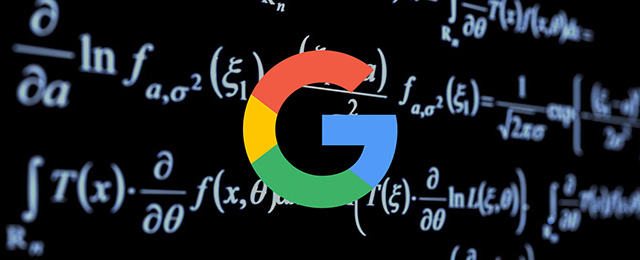
It seems as if I see more volatility signals on the weekends with Google Search than I do during the weekdays. We may have had another Google search ranking algorithm update, unconfirmed, this weekend, around November 11th and 12th.
I saw chatter start to spike up a bit both in public and private SEO forums on Friday afternoon. I also noticed that the tracking tools, at least some of them, showed more volatility on Friday and Saturday than on a normal weekday this past week.
Weekend Update Trend
Like I said, it seems we have been seeing more volatility signals on the weekends than weekdays. For example, we had reports of an update last weekend, on November 4th and 5th, the weekend before that on October 28th/29th, the spam update kind of surged on a Friday/Saturday with Octber 21st and 22nd, but the one before that was on a Thursday, October 13th.
Recently, it just seems we are seeing adjustments on Fridays and Saturdays. I mean, that can make sense if Google has search launch meetings towards the end of the week and pushes happen on Fridays? I am just guessing here…
SEO Chatter
Here is some of the chatter I found across the SEO community about this unconfirmed Google search update.
I mean I could bomb out like the October spam update; things may return to what they were when the spam update hit; I am trying to stay positive. 2/3 of posts posted yesterday rank 1s …. the fightback is coming, Friday is historically the slowest day for weekdays, today even though it is lower than normal, obviously, it is up almost 10% to last Friday too 😉
‘Tis early Saturday afternoon for me and it is very noticeable that something has been “changed” to my global site in the past 48 hours with a return to mostly single page views per visitor. I have seen this pattern several times before when G has done something therefore it will be interesting to see for how long it continues.
After an above-average first 10 days of the month today is extremely quiet across all sites from all regions.
On Saturday my global site was at the lower end of average page views at just under 61%, today it is looking much more normal with many muliple page views, actual metrics right now show -25% fewer uniques but +20% page views, much closer to average.
I continue to be surprised by the UK hotel site, it is way, way up on previous years for a November with only beer sales down a little, food and accommodation are still going well with Xmas meal bookings ahead of previous years!
Here is some from Twitter:
Hey @rustybrick I am seeing HUGE swings in the SERP these past 24 hours, anything on your end? Dramatic gains and drops in the rankings.
— Taylor Kurtz (@RealTaylorKurtz) November 13, 2022
At least, rankings are not stable.
— Sturdy Business (@SturdyBusiness) November 13, 2022
Rankings completely unstable
— Chris Carberg (@ChrisCarberg) November 13, 2022
yes something definitely happened
— Tariq Aziz (@tariqaziz915) November 13, 2022
Am also seeing, I have mentioned you a day ago
— IjazPMLN (@IjazMNS) November 13, 2022
Massive shuffle in rankings, a lot of SERP volatility.
— Siddhesh N. (☞゚ヮ゚)☞ (@mrspiffffy) November 13, 2022
50% down overnight pic.twitter.com/a96kQo6hlb
— JS (@Jeelanisheik) November 14, 2022
yes suddenly my hit site is gaining again. pic.twitter.com/dX34Jp420X
— Santosh Kumar (@samlinkexpert) November 14, 2022
True Barry, I have already sensed that, like from Thursday actually. My 2 high traffic generating sites suddenly shown a good drop which has normal organic daily click is 51k but now at 43k per day from Thursday actually.
— Amit Saha 🇮🇳 | 🇸🇬 (@amitsh053) November 14, 2022
A few crazy swings across multiple sites.
— Justin Kinley Atkins (@FuziJuzi) November 14, 2022
Google Tracking Tools
Here are what the tracking tool are showing:
Are you noticing any big ranking swings from the weekend? Let us know.
Forum discussion at WebmasterWorld.
Source: www.seroundtable.com
SEARCHENGINES
Google Says Again, Sites Hit By The Old Helpful Content Update Can Recover
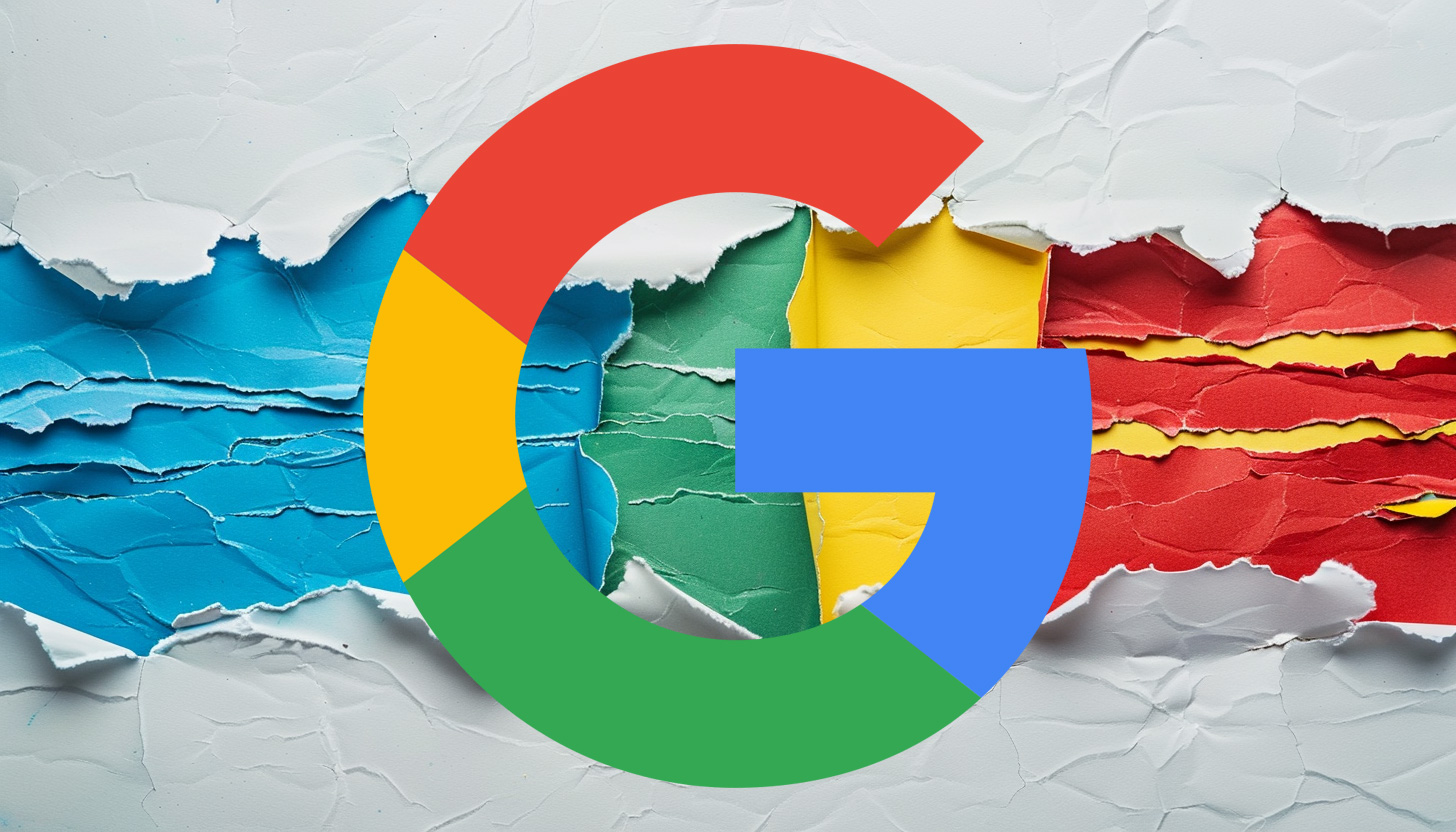
Google’s John Mueller said again this morning that sites hit by the old September helpful content update or even new core updates can recovery. He said on X and on LinkedIn that it is possible to recover but it is not a simple change you can tweak on your website, but rather it takes a lot of effort, over time, to recover.
John said that not only can you recover but you can grow. He said this morning, “Yes, sites can grow again after being affected by the “HCU” (well, core update now).”
Last week we covered how John said it may just take a lot of time to recover from that helpful content update. This is despite Google telling some people it can take weeks (then said several months) to recover.
I know the helpful content update is no more, it is now a core update. But many were expecting some of those hit by the September helpful content update to recover with the March 2024 core update – but that did not happen.
John Mueller from Google said on LinkedIn, “It’s just that some kinds of changes take a long time to build up, and that applies to all kinds of systems & updates in Google & in any other larger computer system.”
He wrote on LinkedIn fully:
I realize this is from the title of Barry’s post, but to be clear, it’s not that “helpful content update” “recoveries” take longer than other updates. It’s just that some kinds of changes take a long time to build up, and that applies to all kinds of systems & updates in Google & in any other larger computer system. Saying that this is specific to the helpful content system, or to core updates would be wrong & misleading.
There is, however, the additional aspect of the “core update” being about how our systems assess content overall, how we consider it to be helpful, reliable, relevant to users’ queries. This does not map back to a single change that you can make on a website, so – in my experience – it’s not something that a website can just tweak overnight and be done with it. It can require deep analysis to understand how to make a website relevant in a modern world, and significant work to implement those changes — assuming that it’s something that aligns with what the website even wants. These are not “recoveries” in the sense that someone fixes a technical issue and they’re back on track – they are essentially changes in a business’s priorities (and, a business might choose not to do that).
He added on LinkedIn:
making a site more helpful (assuming that’s what you’re aiming for) doesn’t mean you have to add more content. There’s a lot that goes into making a helpful site – content is one part, and more content is not necessarily more helpful. Think about how you use the web.
He also posted this morning on X, “Yes, sites can grow again after being affected by the “HCU” (well, core update now). This isn’t permanent. It can take a lot of work, time, and perhaps update cycles, and/but a different – updated – site will be different in search too.” He added, “Permanent changes are not very useful in a dynamic world, so yes. However, “recover” implies going back to just-as-before, and IMO that is always unrealistic, since the world, user-expectations, and the rest of the web continues to change. It’s never “just-as-before”.”
Here are some of the new posts on this topic from John over the weekend:
Permanent changes are not very useful in a dynamic world, so yes. However, “recover” implies going back to just-as-before, and IMO that is always unrealistic, since the world, user-expectations, and the rest of the web continues to change. It’s never “just-as-before”.
— John 🧀 … 🧀 (@JohnMu) May 6, 2024
Yes, sites can grow again after being affected by the “HCU” (well, core update now). This isn’t permanent. It can take a lot of work, time, and perhaps update cycles, and/but a different – updated – site will be different in search too.
— John 🧀 … 🧀 (@JohnMu) May 6, 2024
It’s because not all changes require another update cycle. In practice, I’d assume that stronger effects will require another update. Core updates can include many things.
— John 🧀 … 🧀 (@JohnMu) May 4, 2024
(“thresholds” is a simplification for any numbers that need a lot of work and data to be recalculated, reevaluated, reviewed)
— John 🧀 … 🧀 (@JohnMu) May 4, 2024
So keep working on your site and maybe you will recover in the long run?
SEARCHENGINES
The Industry Mourns The Loss Of Mark Irvine

I am deeply sad to report that Mark Irvine passed away unexpectedly last night. Mark was deeply involved in the search marketing community, known as being a brilliant paid search specialist who always spent his time helping others over his long career in the space.
Mark has been in the search marketing industry for well over a decade, seven years at WordStream and the last four or so years at SearchLab. He was always a bright and welcoming smile at industry events, sharing advice with colleagues and friends.
Navah Hopkins worked with Mark for many years and she sent me the following message:
“Do less”
These were the words Mark would always say to me when we worked together. Yet he was incapable of doing less. He brought so much love and care to everything he did.
I was lucky enough to work with Mark directly for about 5 years, and counted him a friend since then. Beyond being a brilliant data scientist and a natural leader, Mark was one of the most human humans I’ve ever known. He understood people at a fundamental level and always made sure others around him could shine.
Mark would often say that I was his dedicated PR team and even as I’m writing this detailing his accomplishments and his amazing (and all together too short) life, I can hear him laughing that I’m doing it again. Well – tough…just enjoy the love we have for you and sip those heavenly pumpkin spice lattes.
Mark was always put data first behind every major project at WordStream, Navah told me. He was a worldly person who traveled abroad to speak at many events. He was really good at connecting with people abroad. Mark was named the #1 PPC influencer in 2019 and was consistently was on that list year-after-year. PPCHero has recognized him as one of the top PPC Influencers every year since 2015, as did Microsoft and in 2019.
Here is Mark’s bio at SearchLabs.
He leaves behind his partner, Bobby Main and his mother, Virginia Hall.
Here are some early reactions to the sad news of Mark passing:
I can’t believe he’s gone….at least we know he has an eternity of pumpkin spice lattes and Big Brother: Heaven edition to look forward to.
Thank you for the grace and love you brought to all lucky enough to know you @MarkIrvine89. Rest in peace ♥️ pic.twitter.com/lpufASDPaO
— Navah Hopkins (@navahf) May 3, 2024
Y’all… I can’t even.
It’s impossible to think that we’re going to live in a world without @MarkIrvine89 in it. Infinitely thankful I got to spend the last 4 years working with him and deepening our friendship…
— Greg Gifford (@GregGifford) May 3, 2024
Like many others, just enjoyed time spent with Mark @Pubcon earlier this year.
A brilliant paid search marketer, and a terrific human being, with red wine wit, and caviar personality.
Love you and miss you my friend. https://t.co/ntQzrS7jIg
— Damon Gochneaur (@DamonGochneaur) May 3, 2024
Just saw Mark at PubCon. Cant believe he’s gone. He was a PPC legend and a friend. 💔 #ppcchat https://t.co/nF0cbQ9U51
— Kirk Williams (@PPCKirk) May 3, 2024
I can’t believe Mark is gone – feels like it was just a few weeks ago that we were all hanging out at PubCon. I can’t believe he’s gone. Mark was always kind & generous in sharing his time and talents with the PPC community, and was a genuinely wonderful person.
Thoughts to… https://t.co/G2IcsbVtCy
— Sam (@DigitalSamIAm) May 3, 2024
I’m still in nothing but shock. You were an amazing person and friend. I’m going to miss you so much. Rest in peace @MarkIrvine89 🥺💔
— Chrissabur (@ChristoferAlec) May 3, 2024
Oh so heavy hearted. Your intellect, wit, and candor were next level and you never ceased to make others smile, laugh, and deeply ponder. You were a pillar of the PPC community. May you rest in peace, @MarkIrvine89 https://t.co/ir2fOqLPOb pic.twitter.com/RRFImGlXfa
— Akvile DeFazio (@AkvileDeFazio) May 3, 2024
I’m so very sorry to see this 😔 RIP @MarkIrvine89 🙏 https://t.co/4tn8R5LbMR
— Aleyda Solis 🕊️ (@aleyda) May 3, 2024
This is devastating news.
Mark was a truly lovely human and the world is a little less bright without him in it.
Massive hugs to his family and all who knew and loved him. He will be missed. 💔#PPCChat https://t.co/wa3u7EKRo4
— Julie F Bacchini (@NeptuneMoon) May 3, 2024
Really sad to hear the news about Mark. I remember sharing a number of posts from Mark over the years. I never got to meet him in person, but I knew he was a super-sharp paid search professional. Big loss for the industry. https://t.co/orXg1n19fY
— Glenn Gabe (@glenngabe) May 3, 2024
😢😢😢 Heartbreaking. Thoughts are with his family & friends 🙏
— Greg Finn (@gregfinn) May 3, 2024
I am gutted hearing this news. To think we were all together just 2 short months ago. He will always hold a special place in the PPC community, and for everyone he’s interacted with.
You had such a special relationship with Mark, no doubt. Sending you the biggest hug from MN.…
— Brooke Osmundson (@BrookeOsmundson) May 3, 2024
I’m very sorry to hear this news as well. Mark was a really nice person and a brilliant marketer. My condolences to his family and friends. https://t.co/nRxIekXBGy
— Lily Ray 😏 (@lilyraynyc) May 3, 2024
I am very much so at a loss of words. I met Mark while we spoke together at PubCon. I could feel it, he had a very kind soul. He will be missed. https://t.co/zj1gsdgGFn
— Ben Fisher (@TheSocialDude) May 3, 2024
What a truly wonderful human he was. This is just devastating and so heartbreaking. Sending you a huge hug and support, Navah, and my thoughts are with his family and loved ones.
— Ginny Marvin (@GinnyMarvin) May 3, 2024
Forum discussion at X.
SEARCHENGINES
Daily Search Forum Recap: May 3, 2024
Here is a recap of what happened in the search forums today, through the eyes of the Search Engine Roundtable and other search forums on the web.
Google got their cost down to generate AI answers in search by 80%. Google is interested in alternatives to hreflang. Google may recrawl URLs multiple times per day or per month. Google is testing custom search filter templates in search. Google AdSense removed its privacy policy as a placement for withdrawal of consent. And I posted the weekly SEO video recap. And deeply sad to report that passing of Mark Irvine.
Search Engine Roundtable Stories:
-
Search News Buzz Video Recap: Google March Core Update Done, HCU Recoveries, Site Reputation Abuse & AI Topics
This week, we covered how the Google March 2024 core update finished back on April 19th, and Google forgot to tell us. I also posted the May 2024 Google webmaster report. Google said it’s still possible for sites to recover… -
Google SGE AI Answers Now Cost 80% Less To Generate
One of the big worries for Google investors was the cost of running AI to show within its search results. The AI overviews, now AI answers are costly to run. But as expected, Google was able to reduce the cost to generate these AI Answers. -
Google Search Tests Custom Filters & Templates
Google Search is testing custom filters and pre-define search filter templates. It appears you can save your custom filters and reuse those filters for future searches. This is showing up for a limited number of searchers. -
Google Open To Alternative Ideas For Hreflang
Gary Illyes from Google said he has heard from the SEO industry that hreflang can be “annoying” and complex and confusing. So he is open to ideas on how to replace it and make it work for both small and really large websites. -
Google Recrawls URLs At Different Rates: Multiple Times Per Day To Every Few Months
Google has to crawl the web to build its index for it to provide search results. And since webpages and documents get updated, Google needs to recrawl those URLs from time to time. Google will recrawl URLs at different rates, said John Mueller of Google. -
Google AdSense Has Removed Privacy Policy As Place To Withdraw Consent
Google AdSense has removed reference to your privacy policy as a place to withdraw consent. AdSense now has clarified that the revocation link at the bottom of the page should say “Privacy and cookie settings”. -
The Industry Mourns The Loss Of Mark Irvine – Brilliant & Giving Search Marketer
I am deeply sad to report that Mark Irvine passed away unexpectedly last night. Mark was deeply involved in the search marketing community, known as being a brilliant paid search specialist who always spent his time helping others over his long career in the space. -
Google Gradient Canopy Signage
I honestly did not know the new Google office, or one of them at least, was named the Gradient Canopy. I mean, I guess it makes sense. Here is a sign in front of that building with that name.
Other Great Search Threads:
- I like to think of these (artificial, impossible, philosophical) questions as “if I added X to a page, would it be better for Y?” Would adding SD to a page make it rank higher? No. Might it rank differently? Maybe – SD enables some search features, but th, John Mueller on X
- Small Google doc change, they restructured the Product structured data documentation, Barry Schwartz on X
- AdSense Earnings and Observations – May 2024, WebmasterWorld
- I hope it’s not just technically well-made :-). There have been some interesting takes in the space, I’m sure someone will find a model that works for clients, users, search & is profitable., John Mueller on X
- Once you launch a new campaign (and you already have a Conversion Tracking in place) Google will always re-direct you towards the Google Tag Setup with instructions how to implement it. Have you seen it too?, Thomas Eccel on X
- We’ve added Salesforce as a data source for data import! You can now import data directly from Salesforce to Google Analytics as offline-event data. Schedule daily or hourly imports, and select any existing Salesforce mil, Google Analytics on X
Search Engine Land Stories:
Other Great Search Stories:
Analytics
Industry & Business
Links & Content Marketing
Local & Maps
Mobile & Voice
SEO
PPC
Other Search
Feedback:
Have feedback on this daily recap; let me know on Twitter @rustybrick or @seroundtable, on Threads, Mastodon and Bluesky and you can follow us on Facebook and on Google News and make sure to subscribe to the YouTube channel, Apple Podcasts, Spotify, Google Podcasts or just contact us the old fashion way.
-
SEARCHENGINES7 days ago
Daily Search Forum Recap: April 29, 2024
-
SEARCHENGINES6 days ago
Daily Search Forum Recap: April 30, 2024
-
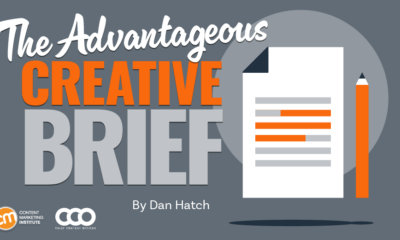
 MARKETING6 days ago
MARKETING6 days agoHow To Develop a Great Creative Brief and Get On-Target Content
-

 SEO7 days ago
SEO7 days agoGoogle’s John Mueller On Website Recovery After Core Updates
-
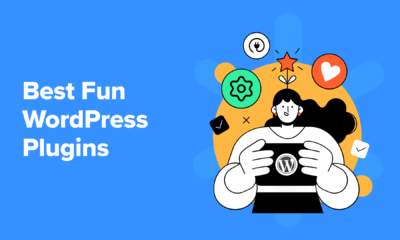
 WORDPRESS6 days ago
WORDPRESS6 days ago13 Best Fun WordPress Plugins You’re Missing Out On
-
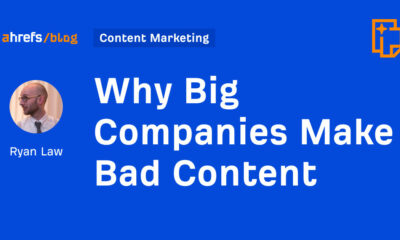
 SEO5 days ago
SEO5 days agoWhy Big Companies Make Bad Content
-

 SEO5 days ago
SEO5 days agoHow To Drive Pipeline With A Silo-Free Strategy
-

 SEO6 days ago
SEO6 days agoOpenAI To Show Content & Links In Response To Queries












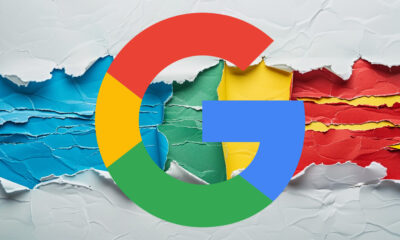





You must be logged in to post a comment Login